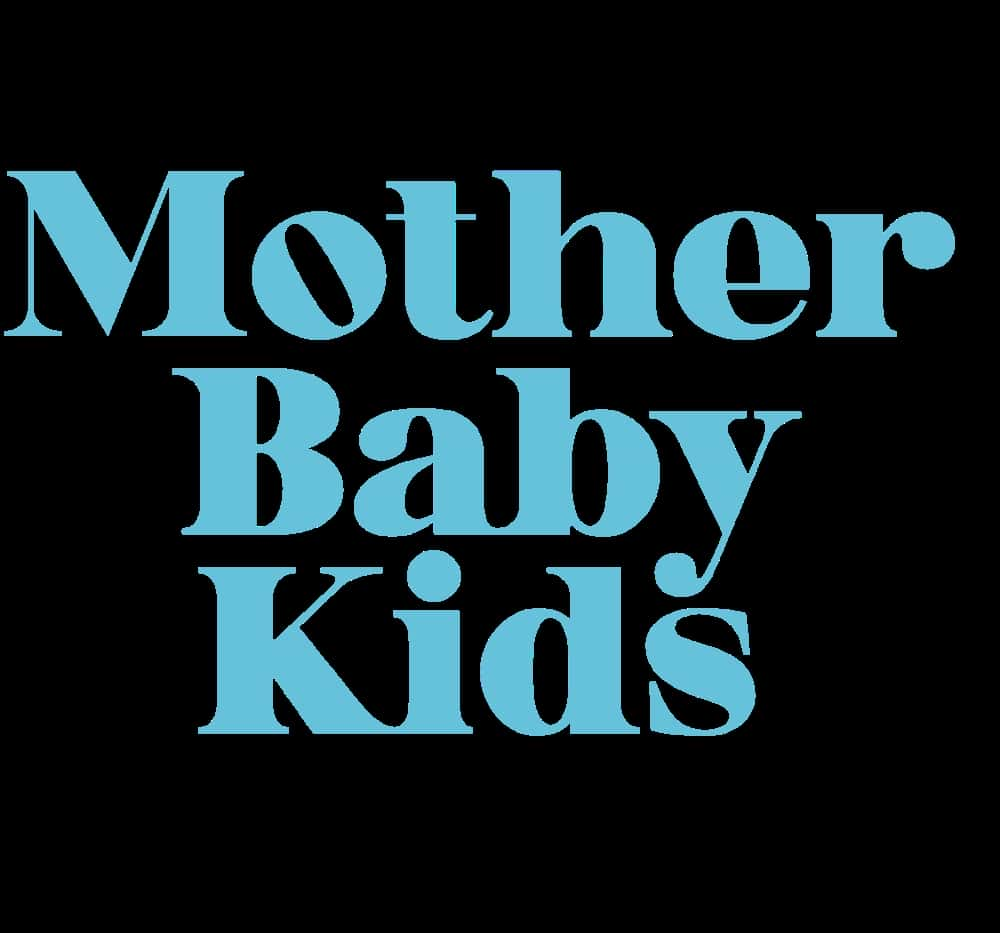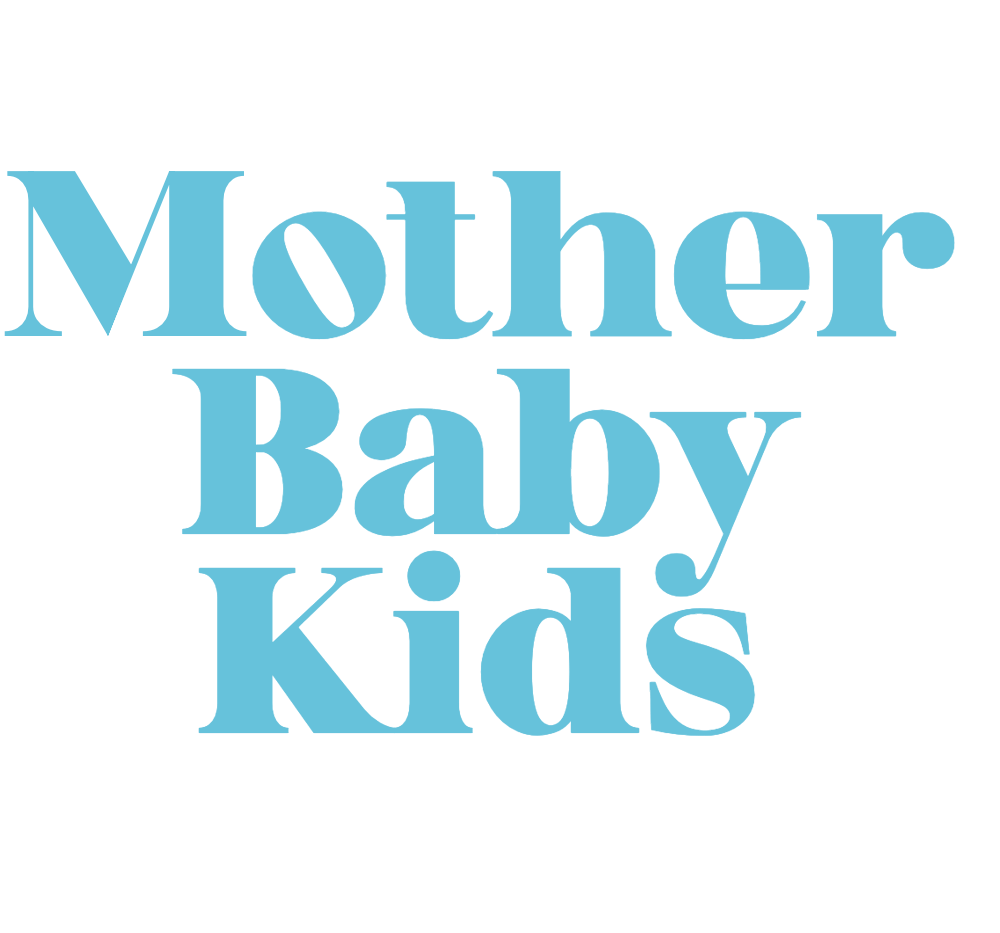Newborn Care
Soothing Your Newborn Who Has Hiccups: A Simple Guide
Uncover the gentle methods to comfort your hiccuping newborn, ensuring a peaceful experience for both of you.

When your baby has those small, repetitive diaphragm contractions, it can be worrisome. But there are gentle and effective ways to help alleviate your little one’s discomfort.
From simple techniques like burping to creating a soothing environment during feedings, this guide offers practical strategies to calm your baby when hiccups strike.
Discover how to navigate this common occurrence with ease and provide relief for your newborn in those hiccup-filled moments.
Key Takeaways
- Hiccups in newborns are beneficial for diaphragm development and breathing regulation.
- Fast feedings and excessive air intake can trigger hiccups in babies.
- Soothe hiccups by patting the baby's back, offering a pacifier, and maintaining a calm environment.
- Prevent hiccups by burping during feedings, feeding smaller amounts frequently, and ensuring proper feeding techniques.
Understanding Newborn Hiccups
If your newborn is experiencing hiccups, understanding the reasons behind these common occurrences can provide reassurance and guidance in managing them effectively. Hiccups in babies are often due to the immaturity of the diaphragm, the muscle responsible for breathing, which can sometimes spasm involuntarily. This spasm causes a quick intake of air, followed by the vocal cords closing, creating the familiar 'hic' sound. While hiccups might seem bothersome, especially if they occur frequently, they're usually harmless and can even be beneficial for your baby's development. These hiccups help to strengthen the diaphragm, regulate breathing, and indicate a well-functioning nervous system.
As a parent, remember that hiccups in newborns are a normal part of their growth and development. There are ways to help alleviate hiccups, such as burping your baby more frequently during feedings to reduce the amount of air they swallow. Ensuring a calm environment during feeding times and avoiding sudden temperature changes can also help prevent hiccups in your little one. Remember, most of the time, hiccups will resolve on their own, so there's no need to worry excessively.
Common Triggers for Hiccups

When newborns experience hiccups, common triggers such as fast feedings, excessive air intake, reflux, and stomach pressure can often be the culprits. It's common for babies to gulp air while feeding, especially if they're eating quickly or if there are interruptions during their feeding sessions. This swallowed air can lead to hiccups as their little bodies try to release it. Additionally, newborns with reflux, where stomach contents flow back into the esophagus, may experience hiccups more frequently. Sometimes, even changes in temperature or feelings of stress and excitement can trigger those adorable but bothersome hiccups in your little one.
Understanding these triggers can help you navigate your baby's hiccups more effectively. By being mindful of factors like overfeeding, air intake, and reflux, you can take steps to prevent or reduce the occurrence of hiccups in your newborn. Don't worry, though; in the next section, we'll explore gentle techniques for soothing your baby when those hiccups inevitably arise.
Gentle Techniques for Soothing

To help soothe your newborn's hiccups, consider gently patting or rubbing their back to alleviate the discomfort. This simple act can help relax your baby's diaphragm and may aid in stopping the hiccups. Offering a pacifier is another gentle technique that can soothe your baby and potentially provide hiccups relief by encouraging swallowing and distraction.
Keeping your baby in an upright position for a few minutes after feeding can also be beneficial in aiding digestion and reducing the occurrence of hiccups. Creating a calming environment by dimming lights and minimizing noise can help your newborn relax during these episodes.
Remember to avoid sudden movements or jostling your baby while they've hiccups to prevent further irritation. By incorporating these gentle techniques, you can provide comfort and relief to your newborn experiencing hiccups, fostering a sense of security and well-being.
Preventing Hiccups in Newborns

Consider implementing simple techniques to prevent hiccups in your newborn. Burp them during and after feedings, feed smaller amounts more frequently, and keep them upright for about 20-30 minutes post-feeding to aid digestion and minimize hiccups. Making sure a proper latch during breastfeeding or avoiding air in the bottle nipple can also help prevent hiccups. Consulting with your baby's healthcare provider for personalized preventive measures can be beneficial in minimizing newborn hiccups.
- Burp your newborn: Release trapped air by burping during and after feedings.
- Feed smaller amounts: Reduce the chances of hiccups by feeding smaller amounts more frequently.
- Keep upright post-feeding: Aid digestion by keeping your baby upright for about 20-30 minutes.
- Use proper feeding techniques: Making sure a good latch during breastfeeding or avoid air in the bottle nipple.
When to Seek Medical Advice

If your newborn's hiccups persist for more than 10-15 minutes despite trying soothing techniques, seeking medical advice is recommended. While occasional hiccups are common in infants and often important, prolonged hiccups could sometimes indicate an underlying issue. Consulting a healthcare provider is essential if your baby's hiccups are accompanied by symptoms like vomiting, fever, or difficulty breathing. Immediate medical attention should be sought if the hiccups are causing distress to your newborn or affecting their feeding patterns or sleep. Observing a pattern of prolonged hiccups or a noticeable increase in their frequency and intensity should prompt you to contact a pediatrician for further evaluation and guidance. It's always better to address any concerns about your newborn's health promptly to guarantee their well-being and to ease any worries you may have.
| Warning Signs for Seeking Medical Advice | ||
|---|---|---|
| Hiccups lasting over 10-15 minutes | Accompanied by vomiting, fever, or difficulty breathing | Causing distress or impacting feeding and sleep |
Frequently Asked Questions
How Can I Soothe My Newborn's Hiccups?
To soothe your newborn's hiccups, gently burp them to release excess gas. Offer a pacifier to relax the diaphragm. Let hiccups resolve naturally in 5-10 minutes. Avoid gripe water without clinical evidence. Create a calm feeding environment to prevent hiccups.
Is It OK to Leave Baby Lying Down With Hiccups?
Leaving your baby lying down with hiccups is generally safe. Hiccups are common and harmless for newborns. Keep an eye on them for comfort. If hiccups persist or worsen, try repositioning gently or soothing techniques for relief.
What Is the Most Comfortable Position for a Newborn With Hiccups?
When your newborn has hiccups, holding them close against your chest or on your shoulder can be the most comfortable position. This helps alleviate pressure on their diaphragm and offers soothing comfort to your precious little one.
Do Hiccups Mean Baby Is Full?
When your baby has hiccups, it doesn't always mean they're full. Hiccups can be caused by things like swallowing air or excitement, not just feeding. Soothe them gently, baby's still figuring it out.
Conclusion
As you navigate the world of soothing your newborn's hiccups, remember that you're their guiding light in times of discomfort. Just like a gentle breeze calming the stormy seas, your loving touch and soothing techniques can help ease their hiccup troubles.
Trust in your instincts, follow the simple tips provided, and watch as your little one finds peace and relief in your caring arms. You've got this, parent!
With a rich background in writing and a keen interest in child development, she specializes in creating insightful, compassionate content that speaks directly to parents’ concerns and aspirations. Margaret believes in the power of shared experiences to bring comfort and confidence to parents everywhere.
Breastfeeding/Formula Feeding
Creating a Newborn's Formula Feeding Schedule at 1 Month Old
Get expert tips on establishing a formula feeding schedule for your 1-month-old newborn – the key to a balanced routine awaits!

After our precious baby arrived, establishing a feeding schedule with formula at one month old made a significant impact on our daily routine. Starting with frequent but small meals was the key to success in the initial weeks. However, as our little one grew, it was essential to adjust and refine that schedule.
However, understanding the intricacies of how often and how much to feed can be overwhelming. Stay tuned to discover some practical tips that can aid in creating a balanced and effective feeding plan tailored to your newborn's needs.
Key Takeaways
- Observe hunger cues and maintain a consistent feeding schedule every 2-3 hours.
- Adjust feeding amounts based on hunger and fullness signs to promote healthy growth.
- Stay flexible and monitor weight gain to tailor the feeding schedule to the baby's needs.
- Increase feeding amounts or frequency based on cues and consult healthcare providers for guidance.
Establishing a Routine for Formula Feeding
When establishing a routine for formula feeding a 1-month-old newborn, it's important to observe hunger cues and maintain a consistent feeding schedule to promote healthy growth and guarantee adequate nutrition. At this age, infants typically consume 2-4 ounces of infant formula every 2-3 hours, totaling around 8-10 feedings in a 24-hour period to fulfill their nutritional requirements. Watch for hunger cues such as rooting, sucking on fists, or increased alertness to determine when your little one needs to be fed. By establishing a consistent feeding routine, you can help your baby feel secure and support their healthy development.
It's vital to monitor weight gain and diaper output to confirm that your newborn is receiving enough formula. Adequate weight gain and regular diaper changes indicate that your baby is getting the nutrition they need. Remember, a reliable feeding schedule not only fosters healthy habits but also provides a sense of predictability and comfort for both you and your little one.
Importance of Consistency in Feeding

Establishing a consistent feeding schedule for your newborn at 1 month old is important for promoting healthy growth and ensuring adequate nutrition. Consistency in feeding provides numerous benefits for both babies and parents:
- Regulating Hunger Cues: By sticking to a regular feeding routine, babies can better predict when they'll be fed, helping regulate their hunger cues and preventing overeating or undereating.
- Promoting Healthy Growth: A consistent feeding schedule aids in the proper nourishment of newborns, supporting their physical development and growth milestones.
- Enhancing Bonding and Stability: Predictable feedings not only create a sense of stability for babies but also foster a stronger bond between parents and their little ones. This bonding time during feedings is important for nurturing emotional connections and promoting overall well-being.
Incorporating a consistent feeding schedule at 1 month old sets a positive foundation for your baby's development and ensures they receive the essential nutrients needed for healthy growth and well-being.
Factors to Consider for Feeding Schedule
To optimize your newborn's feeding routine at 1 month old, it is important to take into account various factors that can influence their feeding schedule. When establishing a feeding plan for your baby, consider factors such as their weight, growth rate, and hunger cues. Babies typically consume 2 to 4 ounces of formula every 2 to 3 hours, totaling around 8 to 10 feedings in a 24-hour period. It is vital to monitor your baby's weight gain and growth to make sure they are receiving adequate nutrition.
| Factors to Consider | Details |
|---|---|
| Baby's Weight | Monitor weight gain to determine if the feeding schedule is providing enough nutrition. |
| Growth Rate | Take into account how your baby is growing as it can impact their feeding needs. |
| Hunger Cues | Watch for signs of hunger to feed your baby when they are hungry. |
| Flexibility | Stay flexible and adjust the schedule based on your baby's individual cues. |
| Preferences | Babies may have specific preferences for feeding times. |
Sample 1-Month-Old Formula Feeding Plan

Considering a newborn's nutritional needs and development, a sample 1-month-old formula feeding plan typically involves offering 2-4 ounces of formula every 2-3 hours, totaling about 8-10 feedings in a 24-hour period. Paramount attention should be given to signs of hunger and fullness displayed by the baby to adjust the feeding amounts accordingly.
Here is a practical guide for a 1-month-old formula-fed baby:
- Feeding Amount: Offer 2-4 ounces of formula per feeding session.
- Feeding Frequency: Aim for feedings every 2-3 hours, amounting to about 8-10 feedings within a day.
- Monitoring: Keep track of wet diapers as a good indication of adequate hydration.
Adjusting Feeding Schedule as Baby Grows
As babies grow, it is essential to gradually adjust their feeding schedule and the amount of formula they consume to meet their evolving nutritional needs. As your baby grows, their feeding needs will change, and it's important to be attentive to signs that they may be ready for adjustments. One key indicator is if your baby is consistently finishing their bottles and seems hungry shortly after a feeding. This could mean they are ready for a larger amount per feeding or may need feedings closer together.
| Signs to Watch For | Adjustments Needed |
|---|---|
| Baby is consistently finishing bottles | Increase amount per feeding |
| Baby seems hungry shortly after a feeding | Consider feeding more frequently |
It's vital to track your baby's weight gain and consult with their healthcare provider regularly to make sure they are progressing well. Remember, every baby is unique, so it's important to tailor their feeding schedule to meet their individual needs as they continue to grow.
Frequently Asked Questions
What Is the Schedule for Formula Feeding for a 1 Month Old?
We aim to provide guidance on a 1-month-old's formula feeding schedule. Typically, feedings occur every 2-3 hours, with 2-4 ounces per feed. Watch for hunger cues like rooting or hand sucking. Remember to burp to ease discomfort and maintain consistency for a routine.
What Is a Good Schedule for a 1 Month Old?
Here's how we figure out a good schedule for a 1-month-old: watch for hunger cues, aim for 8-12 feedings a day every 2-3 hours, adjust as needed based on your baby's signals. Trust your instincts and baby's needs.
How Many Formula Feeds for 1 Month Old?
We usually provide a 1-month-old baby with 2-4 ounces of formula every 2-4 hours. They may need 8-10 feedings a day. Watching for hunger cues is key. Babies might cluster feed, taking smaller amounts more frequently. Consult healthcare providers for personalized advice.
What Is the Feeding Pattern for a 1 Month Old?
We feed our 1-month-old every 2-3 hours, about 8-12 times daily. Each feeding is 2-4 ounces, adjusted as needed. Look for hunger cues like rooting, and burp to prevent gas discomfort. Consistent routines provide security like a comforting hug.
Conclusion
Just like the carefully measured ingredients in a recipe, creating a formula feeding schedule for your 1-month-old baby requires attention to detail and consistency.
By following a structured plan and adjusting as needed, you can nourish your little one while fostering healthy growth and development.
Remember, your baby's feeding journey is unique, much like a perfectly crafted dish – savor each moment and enjoy the process of watching them thrive.
With a rich background in writing and a keen interest in child development, she specializes in creating insightful, compassionate content that speaks directly to parents’ concerns and aspirations. Margaret believes in the power of shared experiences to bring comfort and confidence to parents everywhere.
Newborn Care
Shabby Chic Baby Clothes: Vintage-Inspired Apparel for Your Little One
Journey through the world of shabby chic baby clothes to uncover the enchanting blend of vintage charm and modern elegance for your little one.

If vintage styles captivate you and you want your child to exude elegance and flair, consider dressing them in shabby chic baby clothes.
The delicate fabrics, intricate details, and soft color palettes of these vintage-inspired apparel pieces evoke a sense of timeless elegance.
As you explore the world of shabby chic baby attire, you'll discover how these unique outfits can add a touch of sophistication to your child's wardrobe while capturing the essence of bygone eras.
Key Takeaways
- Timeless charm and delicate lace bring a nostalgic touch to your baby's wardrobe.
- Soft pastel colors and floral patterns exude effortless vintage-inspired style.
- Delicate details like ruffles and intricate lace create an elegant and whimsical look.
- Blend of classic and contemporary fashion for a charming retro appeal.
Adorable Vintage-Inspired Baby Outfits
Indulge in the timeless charm of vintage-inspired baby outfits, complete with delicate lace, intricate smocking, and retro patterns that evoke a sense of nostalgia and sophistication. For your little girl, these chic dresses are a perfect choice to showcase her unique style. Crafted from soft cotton, these dresses guarantee both comfort and style. The floral patterns add a touch of whimsy and playfulness to the overall look, making it ideal for any occasion.
Whether it's a special event or a casual day out, these vintage-inspired dresses are available in various sizes to suit your baby girl's needs. The short sleeves add a modern twist to the classic design, blending the best of both worlds seamlessly. Your little one will stand out in the crowd with these handmade pieces that exude charm and elegance. Embrace the beauty of the past with these adorable outfits that are sure to make your baby girl feel like a chic fashionista.
Timeless Shabby Chic Baby Apparel

Immerse your little one in the timeless elegance of Shabby Chic baby apparel, where delicate floral patterns and soft pastel colors create an effortlessly charming look. This vintage-inspired style brings a touch of nostalgia to your baby girl's wardrobe, offering a blend of classic and contemporary fashion.
Here are five must-have items for your little one:
- Shabby Chic Baby Girl Dress: Adorned with delicate floral prints and crafted from soft cotton, this dress is perfect for any special occasion.
- Vintage-Inspired Romper: A retro piece with a modern twist, featuring pastel hues and intricate details for a stylish look.
- Floral Baby Bonnet: Complete your baby's outfit with a cute bonnet embellished with dainty flowers, adding a touch of vintage charm.
- Shabby Chic Baby Girl Onesie: Keep your little one cozy and stylish in a onesie adorned with timeless floral patterns.
- Pastel Cotton Baby Bloomers: These bloomers not only provide comfort but also add a vintage flair to your baby's ensemble.
Whimsical Vintage-Inspired Baby Clothes
Elevate your baby's wardrobe with whimsical vintage-inspired baby clothes that exude charm and nostalgia through intricate details and soft pastel hues. Shabby chic designs for baby girls often feature delicate lace, charming ruffles, and timeless floral patterns, creating a look that's both vintage-inspired and stylishly retro. The use of pastel colors like soft pinks, blues, and yellows adds a touch of innocence and sweetness to these outfits, perfect for your little one's everyday wear or special occasions.
When choosing vintage-inspired baby clothes, parents can expect soft fabrics that prioritize comfort without compromising on quality. These pieces are designed to be gentle on your baby's delicate skin while ensuring durability for long-lasting wear. Embracing the whimsical charm of bygone eras, these outfits beautifully blend classic elements with modern trends, offering a unique and enchanting style for your little darling. Explore the world of whimsical vintage-inspired baby clothes to curate a wardrobe filled with timeless pieces that capture the essence of childhood magic.
Elegant Shabby Chic Baby Attire

Embrace the timeless allure of elegant shabby chic baby attire with its vintage-inspired designs and delicate floral patterns in soft pastel colors. Discover the world of charming vintage aesthetics for your little one's wardrobe with these exquisite pieces:
- Rompers exquisitely crafted with intricate lace details.
- Dresses adorned with dainty floral embroidery for a touch of whimsy.
- Coordinated sets featuring matching bloomers and bonnets for a complete look.
- Attention to detail in every stitch and button, ensuring quality and style.
- Perfect for special occasions, creating a nostalgic and elegant ensemble for your baby.
These shabby chic baby clothes aren't just garments; they're expressions of a bygone era brought to life with a modern twist. Infuse your little one's wardrobe with the elegance and sophistication of vintage-inspired designs, perfect for capturing hearts and turning heads at any event.
Charming Retro Baby Garments
Infuse your little one's wardrobe with a touch of retro charm through a delightful collection of playful prints and stylish designs inspired by the 60s and 70s. Retro baby clothes offer a vintage look with intricate smocking and delicate lace details, adding a unique charm to each piece. The sturdy designs make sure that your baby can explore and play comfortably while exuding a classic appeal. These charming garments bring a timeless aesthetic to your baby's attire, perfect for creating a trendy and elegant look.
| Retro Baby Clothes | Features | Style |
|---|---|---|
| Playful Prints | Cool color schemes | Vintage Look |
| Sturdy Designs | Smocking & Lace Details | 60s and 70s Inspired |
| Classic Appeal | Retro-Inspired Rompers | Timeless Aesthetic |
Frequently Asked Questions
What Is Trending in Baby Clothes?
Soft pastel colors, floral patterns, and lace details dominate the latest baby clothing trends. Handmade vintage pieces with personalized touches are all the rage. Retro collections are blending classic styles for a nostalgic touch.
How to Make Baby Clothes Out of Old Clothes?
To make baby clothes out of old ones, your creativity! Snip, stitch, and style. Transform adult garments into adorable mini outfits. Mix fabrics, add trims, and craft unique pieces for your little one. Embrace the art of upcycling!
What Are the Most Profitable Baby Clothes?
For the trendiest and most profitable baby clothes, focus on vintage-inspired pieces, unique handmade designs, and personalized sets. These items attract niche markets and can command higher prices, especially for special occasions and gifts.
How to Dress a Little Baby Girl?
To dress a little baby girl, embrace shabby chic with pastel hues, florals, and lace. Opt for comfy cotton and linen. Accessories like bows and vintage shoes add charm. Find rompers, dresses, and bloomers in sizes 0-24 months for style that fits perfectly.
Conclusion
You simply can't resist the allure of shabby chic baby clothes for your little one.
With their adorable vintage-inspired designs and timeless appeal, these outfits are a must-have for any fashion-forward parent.
Dress your baby in whimsical and elegant attire that exudes charm and sophistication.
Trust us, these charming retro garments will make your baby the trendiest little one on the block!
Embrace the nostalgia and style with shabby chic baby clothes today.
With over a decade of experience in editorial leadership, Esther has been at the helm of Mother Baby Kids since its inception. Her journey into parenting content was inspired by her own experiences as a mother, navigating the joys and challenges with a desire to support other parents. Esther is passionate about storytelling that connects, educates, and empowers families from all walks of life.
Newborn Care
The 3 Essential Stages of Newborn Poop You Should Know
Yearning to unravel the mysteries of your newborn's poop journey? Discover the essential stages and why they matter in understanding your baby's health.

As new parents, we may not realize that newborns can go through three essential stages of poop within the first few days of life.
Did you know that meconium, the initial blackish-green stool, is actually a sign of a healthy digestive system adapting to the outside world?
Understanding these stages can provide valuable insights into your baby's health and development.
But what happens after meconium? Stay tuned to discover the intriguing progression of your newborn's poop and why it's crucial to be aware of these changes.
Key Takeaways
- Meconium passage crucial for assessing digestive system development.
- Transitional stools signify digestive system maturation for feeding transition.
- Breastfed poop indicates efficient digestion and proper nutrient extraction.
- Characteristics of formula-fed poop essential for evaluating digestive function.
Meconium: Baby's First Poop
Upon birth, newborns expel meconium, their initial stool, which is characterized by a greenish-black and sticky appearance. Meconium is a unique substance composed of amniotic fluid, mucus, and shed skin cells that the baby accumulated during its time in the womb.
This first stool plays a critical role in clearing the baby's intestines of waste products, preparing them for the shift to regular bowel movements. The presence of meconium within the first 24-48 hours after birth is a positive sign, indicating a healthy digestive system and the proper functioning of the baby's gastrointestinal tract.
It's essential to note that meconium's distinct color and consistency set it apart from the stools that will follow in the newborn's bowel movement progression. Understanding and monitoring the passage of meconium is an essential aspect of newborn care, ensuring that the baby's digestive system is developing as expected.
Transitional Stools: Transition to Regular Poop

During the change from meconium to regular stool, newborns typically experience the emergence of dark green, loose stools containing mucus, reflecting the maturation of their digestive system. These intermediary stools, usually appearing 2-4 days after birth, signify the baby's readiness to process breast milk or formula efficiently.
The dark green color and the presence of mucus indicate the shift in the baby's digestive system. Parents should anticipate a gradual alteration in both color and consistency of their baby's stool at this stage. Monitoring this progression is vital for evaluating the newborn's digestive health.
As the digestive system adapts to the nutrients from breast milk or formula, the color and texture of the stool will continue to evolve, preparing the baby for the next stage of healthy digestion. Understanding these changes in intermediary stools assists parents in ensuring their newborn is on the right track to regular, healthy bowel movements.
Regular Breastfed Poop: Healthy Baby Digestion
Moving from the middle period of changing stools, newborns who are exclusively breastfed typically produce mustard yellow, seedy poop that indicates their efficient digestion of breast milk nutrients. The color and texture of breastfed baby poop are key indicators of their health. The mustard yellow hue is a result of the breakdown of bile in the gut, while the seedy texture is due to undigested milk fat globules, which are completely normal.
This type of poop is often sweet-smelling and has a runny consistency, reflecting the high water content of breast milk. Regular breastfed poop signifies that the baby is extracting essential nutrients from breast milk and is well-hydrated. Monitoring the color, texture, and frequency of these stools is important for evaluating the baby's digestive well-being.
It's reassuring to see these characteristics in breastfed baby poop, as they indicate that the baby is thriving and benefitting from the nutrients provided by breastfeeding.
Formula-Fed Poop: What to Expect

When feeding a baby formula, parents can expect the baby's poop to typically have a yellow or tan color with a firmer consistency compared to breastfed baby poop. The odor of formula-fed baby poop may be slightly stronger and different from breastfed baby poop. Formula-fed babies tend to have less frequent bowel movements, but the stool is generally more formed.
Replacing certain ingredients in the formula composition or brand can influence the color and texture of a baby's poop. Formula-fed baby poop may have a peanut butter-like consistency, which can vary based on the type of formula being used. Observing these characteristics can help parents make sure that their formula-fed baby's digestive system is functioning well. If there are concerns about the color, texture, or frequency of bowel movements, consulting a healthcare provider for guidance is recommended.
Monitoring Baby's Poop: Signs of Concern
To guarantee your baby's well-being, it's important to closely monitor their poop for any signs of concern.
- Changes in Color: Keep an eye out for red or black stool, which could indicate blood in your baby's poop.
- Consistency and Texture: Any mucus in your baby's poop or extreme changes in texture may signal an issue in their digestive tract.
- Frequency of Bowel Movements: Irregular bowel movements could be a sign of an underlying problem that needs attention.
- Weight Gain: If your baby isn't gaining weight as expected, it might be related to their digestive health.
- Bleeding Nipples: For breastfeeding mothers, blood in the baby's stool could be linked to issues such as bleeding nipples.
Monitoring these aspects closely and promptly discussing any concerns with a healthcare provider is essential for ensuring your baby's health and well-being. Remember, early detection and management of any potential health problems is key to a happy and healthy baby.
Frequently Asked Questions
What Are the Phases of Baby Poop?
We understand the phases of baby poop! From meconium to intermediate stools, then breastfed and formula-fed variations, and finally solid-food poop. Understanding these stages is crucial for tracking digestive health and ensuring proper development in infants.
What Do I Need to Know About Newborn Poop?
We've got you covered on newborn poop! It's a window into your baby's health. From color to texture, changes matter. Trust us; understanding these clues helps you navigate the early months with confidence.
What Is Abnormal Poop for Newborns?
Abnormal poop for newborns can include black stool days after birth, red or bloody stool, white or whitish-grey stool, and mucus in stool. Any changes in frequency or consistency should be promptly addressed to safeguard the baby's health.
What Is the First Stool Passed by a Neonate in the First 3 Days of Life?
In the first 3 days of life, a neonate passes meconium, which is dark greenish-black and sticky. It consists of amniotic fluid, mucus, and other substances ingested in the womb, signifying proper digestive function post-birth.
Conclusion
To sum up, keeping an eye on your newborn's poop is a crucial part of ensuring their health and well-being.
By understanding the three essential stages of newborn poop, you can easily monitor any changes and address any concerns promptly.
Remember, what goes in must come out, so don't be shy about checking those diapers for signs of a happy and healthy baby!
With over a decade of experience in editorial leadership, Esther has been at the helm of Mother Baby Kids since its inception. Her journey into parenting content was inspired by her own experiences as a mother, navigating the joys and challenges with a desire to support other parents. Esther is passionate about storytelling that connects, educates, and empowers families from all walks of life.
-

 Third Trimester3 weeks ago
Third Trimester3 weeks agoManaging Nausea in the Third Trimester: A How-To Guide
-

 Third Trimester1 week ago
Third Trimester1 week agoManaging Nausea During the Third Trimester: A How-To Guide
-

 Third Trimester2 weeks ago
Third Trimester2 weeks agoSafe Third Trimester Exercise Guide for Moms-to-Be
-

 First Trimester3 months ago
First Trimester3 months agoDramamine Use in Pregnancy: First Trimester Guide
-

 Newborn Care12 hours ago
Newborn Care12 hours agoNewborn Care Basics: A Step-by-Step Guide
-

 Second Trimester3 months ago
Second Trimester3 months ago10 Common Causes of Dizziness in the Second Trimester
-

 Finding Time for Self2 months ago
Finding Time for Self2 months agoSelf-Care Tips for Single Parents | Make Time for You
-

 Finding Time for Self2 months ago
Finding Time for Self2 months agoSelf-Care for Stay-at-Home Moms: Making Time














